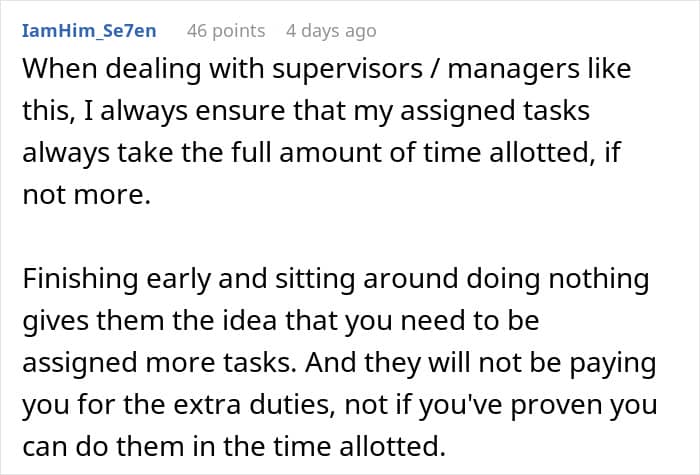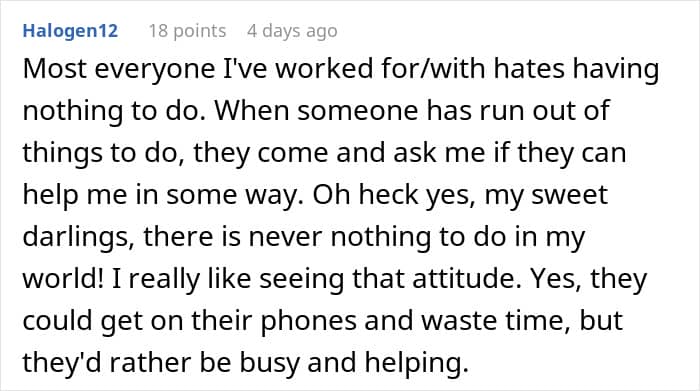Bosses at work can sometimes come in very interesting packages. Especially the type that’s obsessed with structure and somehow convinced that flexibility is not okay. Now, imagine trying to do a good deed at work and getting scolded for it, not because it was wrong, but because it wasn’t on your official hourly breakdown.
Today’s Original Poster (OP) shared a glorious tale of petty revenge via extreme obedience. It all starts in a humble retail store where helping others was apparently a violation of the sacred schedule. They learned that lesson the ridiculous way and decided—if that’s how their manager wanted it, then fine, that’s exactly what they’d get.
More info: Reddit
RELATED:Sometimes, the best way to show that a rule doesn’t work is to simply follow it

The author finished their scheduled tasks early and offered to help a coworker struggling with a heavy delivery
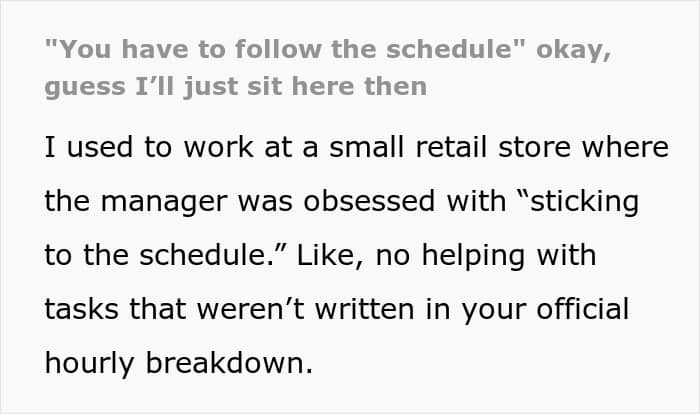
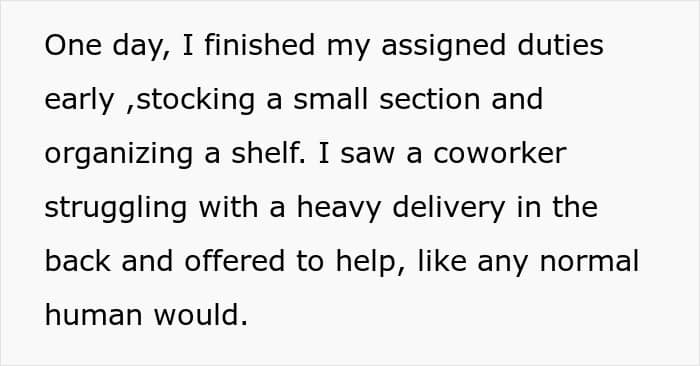

Their manager immediately reprimanded them, insisting that they stick strictly to their assigned schedule
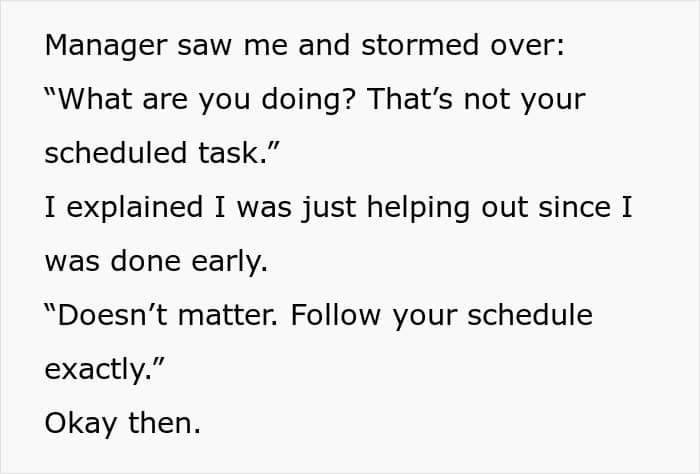


In response, they returned to their area and stood idle for two hours, refusing to assist with any other tasks


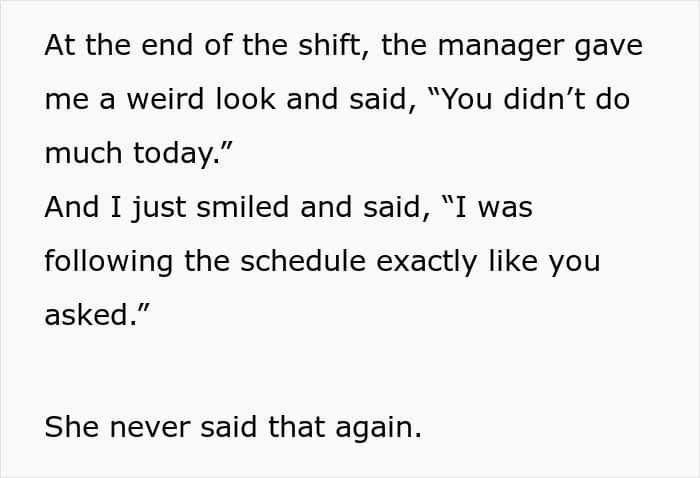
At the end of the shift, when the manager accused them of not doing much, they calmly said they were just following the schedule exactly as instructed
The OP worked in a small retail store run by a manager who took sticking to the schedule to near-religious levels. One day, after finishing their assigned tasks ahead of time, they saw a co-worker struggling with a delivery in the back.
Naturally, they offered a hand, but the manager swooped in like a hawk, fuming as she told them it wasn’t their scheduled task. In turn, they explained that since they were done with their task earlier, they just wanted to give a helping hand. The manager wasn’t moved by this, rather she insisted that it didn’t matter and that they were to stick to their scheduled task.
With no other duties and a clean workspace, the OP went back to their work area and stared. For two straight hours. When customers asked for help or when boxes were piling up in the back, they did nothing.
At the end of the shift, the manager raised an eyebrow at them, saying that they didn’t do a lot that day. To this, the OP responded by saying that they were only following her rules. And just like that, the rigid rule was never mentioned again.

To understand the risks of enforcing a rigid task schedule, We spoke with an HR expert, Dara Faronbi, who explained that such strictness can severely limit employee creativity and innovation. When workers are confined strictly to their assigned duties, there’s little room for trying new approaches, which can harm overall team performance.
Faronbi pointed out that this rigidity often leads to boredom, as employees miss the chance to vary their work or find more enjoyable ways to achieve results. “It also hinders managers from spotting high-potential employees and limits opportunities for teamwork,” she added.
We then asked about the impact of micromanagement on employee morale and productivity over time, to which she described micromanagement as a growing concern in today’s workforce, noting that constant oversight drains energy and creativity.
“When employees are restricted to only following a manager’s exact instructions, they lose the freedom to think independently or contribute new ideas,” Faronbi explained. She also further emphasized that micromanagement ultimately reduces engagement and productivity, making it unsustainable for modern teams.
Finally, we inquired about best practices for handling overachievers or proactive employees. According to Faronbi, managers should identify high performers through targeted programs and give them tasks that challenge them beyond their regular duties.
“Providing opportunities for growth, such as mentorship trainings or leadership roles in team projects can help to train them for higher responsibilities,” she explained, as this approach not only recognizes their contributions but also prepares them to advance within the company.
Netizens shared their personal experiences with similarly rigid or unreasonable managers, echoing a common frustration with poor leadership. They recounted quitting or pushing back when faced with this kind of micromanagement, and also reflected on how management’s obsession with control often backfires.
What would you have done in this situation? Have you ever dealt with a manager who followed the rules a little too literally? We would love to know your thoughts!
Netizens applauded the author for taking that approach and expression their irritation with managers who make work unbearable for employees






